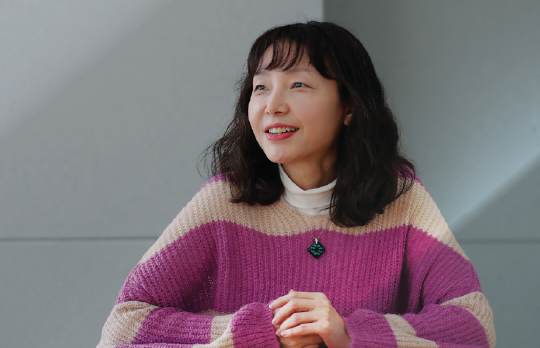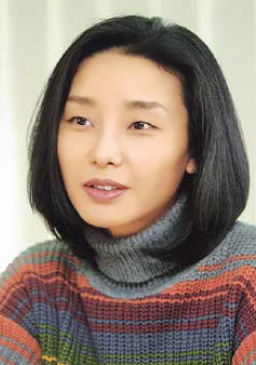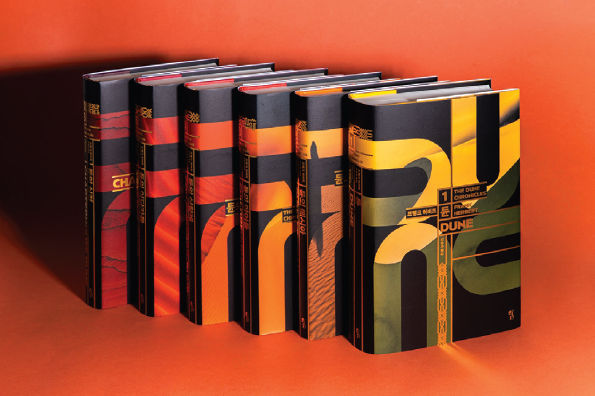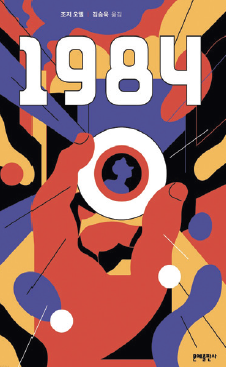
Behind every piece of literature enjoyed by readers over the globe lies the great effort of a translator. Here stands an English- Korean translator that gifts readers various stories abroad delivered through the art of words. The Sungkyun Times (SKT) now flips the page to the story of Kim Sung-uk, a Sungkyunkwan University (SKKU) graduate and a former reporter of the SKT who has translated books such as Dune, 2001: A Space Odyssey, and 1984.
The Prologue of a Translator
Q1. Please introduce yourself.
I am Kim Sung-uk, and I graduated from SKKU in 1988 with a major in English Language & Literature. After graduation, I briefly worked as a reporter at Dong-A Ilbo, studied abroad in the United States, then became a freelance translator in 1995. 28 years have already passed since my debut as a translator.
Q2. Is there a specific reason you became a translator?

During my time at Dong-A Ilbo, I realized that working in an organizational environment was not suited for me. While looking for a freelance job, I gradually became interested in translation as it allowed me to utilize what I learned from majoring in English Language & Literature. The more I thought about the job, the more I became certain that I would be a good fit for translating. Thanks to the connection I made with the publishing industry back when I was a reporter, I could enter the field of translation without much difficulty.
Q3. What experiences helped you when becoming a translator?
Apart from majoring in English Language & Literature, working as a student reporter at the SKT benefitted me the most. Writing two or three articles per month allowed me to understand the language structure and create logical, quality sentences. Also, my years at the Dong-A Ilbo helped me experience organizational life and broadened my vision of the world. At last, studying at the City University of New York allowed me to learn more about the expressions and cultural contexts of a society where English is the primary language.
The Art of Translation
Q4. What specific process do you go through when translating?
While some translators begin by reading the entire book before starting their work, I have set a rule not to do so. I do look up information about the author and the book sometimes but refrain from reading it to recreate the first impression a reader might experience when beginning the story. Thus, I try to translate instantly by reading each page and chapter in the order I work on.
Q5. You recently translated Dune, the science fiction series by Frank Herbert, for the second time after your first translation in 2001. How has your translation style changed from the beginning of your career?
Early in my career, I did not have enough experience to have my own style. Also, I used to be very cowardly when translating. Using words not written in the dictionary was not an option for me as I lacked confidence, so instead, I wrote absurd sentences by literally translating each of them. However, as I prolonged my career, I could establish my standard on an appropriate degree of substitution and paraphrasing. After over 30 years of breaking down sentence structures in my head, I can now write way more natural sentences.
Q5-1. Please tell us about the process of re-translation. Also, how did you feel during that process?
A year before the movie adaptation of Dune got released, I received a call from the publisher that they were planning to print a new version of the series. Since the first translated version was published a long time ago, there were edits I wanted to make, so I requested a review. I looked over one book per month, comparing it with the original English version. Although I wished to make more corrections, I had to consider the readers who had read the series of my original work. Also, I tried to conserve the unique linguistic expressions I used as a beginner at that time. After the process of re-translation, the movie premiered with my name in the end credits to acknowledge my work. Although I was a little shy, I felt very proud and honored.

Q6. Depending on the genre you are translating, are there things you pay specific attention to?
In terms of literature like novels, I try to preserve the author’s writing style as much as I can. To illustrate, if a writer wrote a sentence with linguistic errors, I would bring along those errors in my translations. Meanwhile, in the case of non-fiction books about humanities and social sciences, I prioritize translating them into easily comprehensive sentences with a standard style since the content is more prominent than the expressions they have.
Q7. Please tell us about the most memorable book among those you have translated in your career.

Among my recent translations, 1984 by George Orwell was the most impressive. I enjoyed the novel back in high school, and I felt new rushes of realizations as I re-read the piece for translation. Above all, I was impressed by Orwell’s critical insight into the nature of revolution and how the revolutionaries’ will for so-called justice transforms into oppression.
Q8. What do you think is the most important to a translator?
Knowledge and affection for your mother language is the most important factor. Educate yourself in your first language just as much as you would study English grammar. Other than the linguistic aspects, it is best to have a lot of curiosity and a broader knowledge of the world. This is because translators must work on various genres and not just the ones that they prefer. Knowledge in diverse fields will help you do a great job in translation while also enjoying the process.
Q9. What is your philosophy when translating?
As a person translating other’s work instead of writing my own, I strive to preserve the author’s original intent. Although the author’s writing style differs from mine, I imitate the original sentence as much as possible. Since there is a reason why the writer persists in specific literary expressions, they should not be altered during the translating process. In The Butcher Boy, a novel I worked on, the main character speaks in grammatically incorrect or awkward sentences as he faces mental turmoil. Although those pages had spelling and punctuation errors, I translated them exactly as they were to revive the author’s intentions.
The Next Pages of Kim Sung-uk
Q10. What do you want to accomplish as a translator?
My goal is to be remembered as a translator who devotedly preserves the author’s intentions while transcribing them into good sentences. Also, I have a wish that I have dreamed of for a long time: translating the Star Trek series. As a big fan of the series, I own its book collection at home, and it is even possible to say that it helped me acquire my English skills. Even though publishing the series in Korea would be difficult due to copyright and contract issues, it will still remain a part of my dream.
Q11. Are there any tips you can share with those wanting to become English- Korean translators?
As I said, I would first advise them to study the Korean language with great effort. As the internet and communication technologies develop over time, even the native speakers are making more errors when speaking Korean. In terms of English, there is no other way than to speak, read, and write a lot, as language skills can be acquired only through habitual practice. I also practice speaking by talking to myself in English at home to maintain fluency in the language.
Q12. Lastly, please share a few words with Kingos.
The twenties are the most uneasy but also the most splendid years of one’s life. You might lack in various aspects and lose confidence, but that anxiety you are feeling is proof that a huge potential lies within you. Do not set rigid standards or goals to limit yourself but experience everything you can with an open heart. Life expectancy surpasses 80 years old these days; doing what pleases you for a single year will not dramatically change your life.
